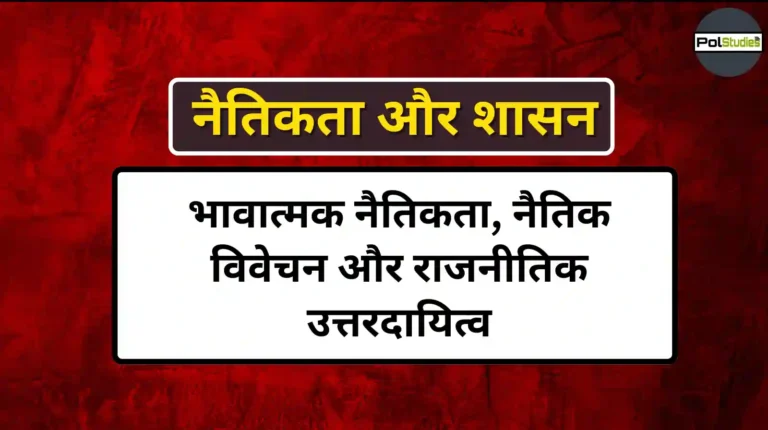Institutional Approach : State Politics In India
India is an important democratic country. Nowhere in the history of human civilization, which is more than five thousand years old, has never been a democratic experiment on such a large scale as it has been going on in India since independence. The realization of the importance of India in the context of democracy is more in the West. It is noteworthy that Dr. Rostov of the University of Texas said that “the most amazing event after the Second World War is the continuation of democracy in India.”
It is also worth noting the statement of the famous historian Prof. Yampson that “India is not only an important country from its own point of view, but it is also the most important country in the whole world in terms of the future of democracy. Constitutional in India for the last 45 years. The use of democratic politics is going on under the governance system.India is counted in the category of ‘Third World States’ or ‘Developing Countries’.
Politics in India is mainly the politics of nation-building and maintaining the unity of the country. Any change is seen from the point of view whether it will strengthen the unity of the nation or not. The key to political stability has been social order. Now this social system is disintegrating and changing.
The challenge before the Indian leaders is that if new institutions are not established in place of the disintegrating social institutions, if new opportunities are not presented and new beliefs and values are not established, then political development will be blocked as well as political The system may or may not break down.
The politics of the states in India or in simple words, what has been state politics, we can understand it mainly through some approaches. This approach helps us to understand the political strategy of different states in India, their dimensions etc. To put it bluntly, state politics in India can be understood through three major approaches.
- Institutional approach
- Political economy
- Developmental approach
Institutional approach
Supporters of institutional approach propound the importance of various institutions in the study of Indian politics. They believe that political institutions provide the basis of our political life. The proponents of this approach lay emphasis on the study of the state government, the various organs of the government, the rules of its organization, rights, duties, etc. of the citizens. In fact, it focuses on the study of the office and role of legitimate and formal institutions like President, Prime Minister, Parliament, Governor.
In other words, this approach focuses its study mainly on the institutions contained in the states to understand the state politics in India, and tries to understand the politics of the state by studying these institutions in depth i.e. the main three aspects of the institutional approach. There are features through which we can understand it better-
Study of Institutions
The institution studies the political systems and it also studies various other institutions (class, caste, government) of the state. Primarily it is an accumulation of rules and regulations, which gives legitimacy to a community or group. Gives them some rights as well as binds them with some responsibility. Institutions have certain distinctive characteristics which are often found in them. Like- Legitimate, Rules, Regulations, Norms, Identities, etc.
Apart from this there are also four other elements of institutions which indicate its structure:-
- Actor’s – They give power to institutions and they also control them by disrupting them.
- Authority – It creates the structure and authority of the institutions and also provides authority.
- Legality – It follows institutions.
- Morality – It reflects the morality of any organization, it is the main component.
- Totality – Institutions should not focus their attention on any one aspect, they should adopt totality.
Formal and Informal Institutions
Under the study of institutions, mainly two types of institutions are seen. Formal and informal institutions are mainly established in all the countries of-
Formal Institutions
These are the essential institutions to govern and control the system and functioning of any country. We can understand this in the form of three functions-
1. Law making- It works to make laws, rules and policies for its states in any country, it is known as Parliament in India. It is known by different names in different countries.
2. Law Implementation- These institutions mainly work to implement and implement the laws made. The President and his Council of Ministers perform this function in India.
3. Adjudicative Law- This institution mainly works to define laws. It keeps in mind that Parliament should not make any such law which violates the Constitution. In India it is known as Judiciary.
Read Also:- Political Economy Approache | State Politics in India
Informal Institutions: Parties and pressure groups play an important role in influencing the politics of the states. They influence elections immensely, due to which it becomes necessary to study such informal organizations as well as NGOs and media also play their important role in this context.
Revival of the Institution- Under the institutional approach, we also focus on the facts of the revival of institutions. It also studies the decline of institutions in any way and it also studies the de-institutional process.
Therefore, the institutional approach within the politics of the state helps us to understand all the above aspects.



